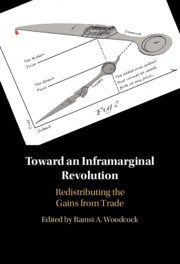Refine search
Actions for selected content:
71 results
Purpose in Law and in Interpretation
-
- Journal:
- International & Comparative Law Quarterly , First View
- Published online by Cambridge University Press:
- 15 December 2025, pp. 1-22
-
- Article
- Export citation
2 - Broken Contracts
-
- Book:
- Debts Unpaid
- Published online:
- 04 November 2025
- Print publication:
- 20 November 2025, pp 53-98
-
- Chapter
- Export citation
12 - Law of Private Remedies in the Governance of AI
- from Part III - Technology’s Disruptive Effects on Law
-
-
- Book:
- The Cambridge Handbook of the Governance of Technology
- Published online:
- 30 October 2025
- Print publication:
- 13 November 2025, pp 207-222
-
- Chapter
- Export citation
Towards a Coherent Regulation of Dispute Resolution Agreements?
-
- Journal:
- German Law Journal / Volume 26 / Issue 5 / June 2025
- Published online by Cambridge University Press:
- 05 November 2025, pp. 949-978
-
- Article
-
- You have access
- Open access
- HTML
- Export citation
3 - The Financial Revolution in English Localities
-
- Book:
- The Capitalist Self
- Published online:
- 12 October 2025
- Print publication:
- 30 October 2025, pp 101-164
-
- Chapter
- Export citation
9 - Contracts, Competition, International Trade, and the Environment
-
- Book:
- Beer Law
- Published online:
- 26 September 2025
- Print publication:
- 16 October 2025, pp 145-162
-
- Chapter
- Export citation
6 - Distributive Consequences of Regulating Boilerplate
-
-
- Book:
- Toward an Inframarginal Revolution
- Published online:
- 26 September 2025
- Print publication:
- 16 October 2025, pp 161-186
-
- Chapter
- Export citation

Beer Law
-
- Published online:
- 26 September 2025
- Print publication:
- 16 October 2025

Toward an Inframarginal Revolution
- Redistributing the Gains from Trade
-
- Published online:
- 26 September 2025
- Print publication:
- 16 October 2025

Disability, Human Rights, and Contract Law
-
- Published online:
- 06 August 2025
- Print publication:
- 31 July 2025
1 - Introduction
-
- Book:
- Disability, Human Rights, and Contract Law
- Published online:
- 06 August 2025
- Print publication:
- 31 July 2025, pp 1-8
-
- Chapter
- Export citation
2 - The Map
-
- Book:
- Disability, Human Rights, and Contract Law
- Published online:
- 06 August 2025
- Print publication:
- 31 July 2025, pp 9-33
-
- Chapter
- Export citation
6 - Conclusion
-
- Book:
- Disability, Human Rights, and Contract Law
- Published online:
- 06 August 2025
- Print publication:
- 31 July 2025, pp 212-215
-
- Chapter
- Export citation
3 - The First Bridge
-
- Book:
- Disability, Human Rights, and Contract Law
- Published online:
- 06 August 2025
- Print publication:
- 31 July 2025, pp 34-91
-
- Chapter
- Export citation
5 - The Third Bridge
-
- Book:
- Disability, Human Rights, and Contract Law
- Published online:
- 06 August 2025
- Print publication:
- 31 July 2025, pp 165-211
-
- Chapter
- Export citation
2 - Contract Law and Inequality in the Global South
-
-
- Book:
- Legal Heterodoxy in the Global South
- Published online:
- 19 June 2025
- Print publication:
- 03 July 2025, pp 37-76
-
- Chapter
-
- You have access
- Open access
- HTML
- Export citation
The Cause of the Contract in French and Italian Law: ‘I will Survive’
-
- Journal:
- Cambridge Yearbook of European Legal Studies / Volume 26 / December 2024
- Published online by Cambridge University Press:
- 25 June 2025, pp. 121-137
-
- Article
-
- You have access
- Open access
- HTML
- Export citation
The 2016 Reform of French Contract Law: Some Recent Developments
-
- Journal:
- Cambridge Yearbook of European Legal Studies / Volume 26 / December 2024
- Published online by Cambridge University Press:
- 13 February 2025, pp. 106-120
-
- Article
-
- You have access
- Open access
- HTML
- Export citation
Redefining equality in European contract law: protecting consumer interests in a post-consumer society
-
- Journal:
- European Law Open / Volume 3 / Issue 3 / September 2024
- Published online by Cambridge University Press:
- 16 December 2024, pp. 561-586
-
- Article
-
- You have access
- Open access
- HTML
- Export citation
4 - Self-Driving Contracts and AI
- from Part I - Law of Obligations
-
-
- Book:
- The Cambridge Handbook of Private Law and Artificial Intelligence
- Published online:
- 21 March 2024
- Print publication:
- 28 March 2024, pp 93-112
-
- Chapter
- Export citation
